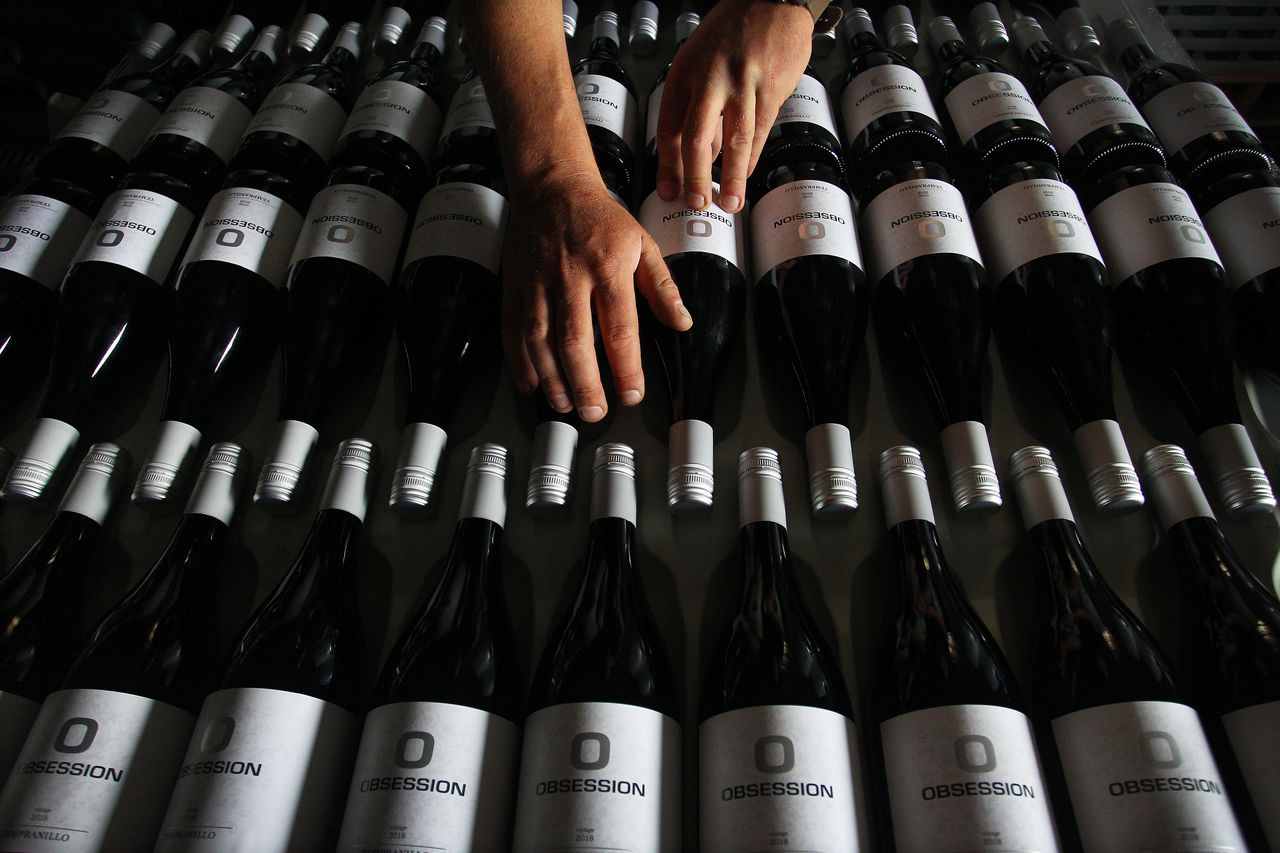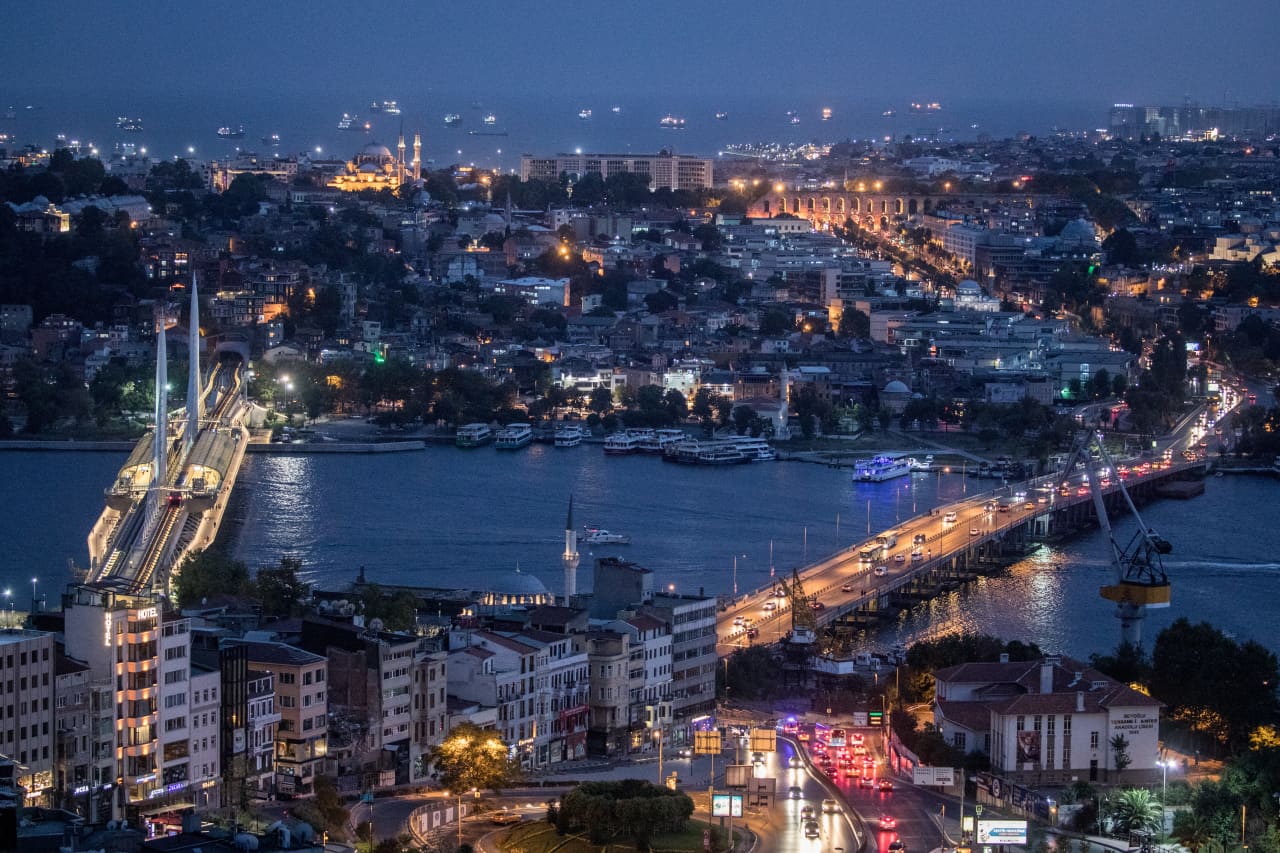How Can Companies Push Back on China? Be Like Australia.
Drinking together has always been a way to show solidarity. And that’s what Australian allies are doing, in response to Beijing’s newest trade sanctions on the country’s wine industry. Taiwanese legislators posted photographs of themselves with bottles of Australian wine, while a Swedish politician urged people to stand up to Beijing by “drinking a bottle or two.” Even the U.S. National Security Council joined in with an unusually punchy tweet. The bandwagoning may be awkward at times, but it contains an important lesson: The best way to push back against Beijing’s coercion is through a unified response.
For more than six months, Beijing has been waging a trade war against Australia. The latest salvo—up to 212% tariffs on Australian wine, announced on Nov. 27—threatens to decimate the country’s roughly $3 billion wine industry, and adds to a crowded list of tariffed items. The total amount targeted is now roughly $20 billion. Beijing has blamed Australia for a “series of wrong moves,” and announced 14 political disputes it expects Canberra to rectify in order to improve the relationship.
This is not a new tactic for Beijing. Since the 1990s, Beijing has made public examples of foreign institutions, people, and countries, and used that to scare others into acquiescence. After the Houston Rockets’ then general manager Daryl Morey tweeted about Hong Kong in October 2019, for example, Beijing froze the NBA out of China for a year, leading to hundreds of millions of dollars of lost revenue for the organisation. Reached for comment, an NBA spokesperson forwarded NBA Commissioner Adam Silver’s recent comments, where he said that the NBA’s response to the China scandal was, “We support freedom of expression.”
The NBA incident wasn’t the first. After the independent Nobel committee’s 2010 decision to award the Nobel Peace Prize to the Chinese dissident Liu Xiaobo, Beijing drastically curtailed Norway’s salmon exports to China. Companies like Marriott and the South Korean conglomerate Lotte have been targeted, too.
The strategy Beijing is using against Australia—coordinated complaints, economic punishment for political crimes, and an insistence that the other party is solely at fault—is remarkably similar to what Beijing did to the NBA. What’s new is Australia’s response.
The crucial difference lies in Australia’s smart insistence in not facing China alone. Since the beginning of its trade war, Canberra has strengthened old alliances and built new ones. It has agreed to develop a supply chain resilience program with Japan and India, signed a free trade deal with Indonesia, and benefitted from political support of countries like France, New Zealand, and especially the United States. Australia has urged its allies to understand that the more it yields to an attack by Beijing, the worse it is for its partners. This is especially true with the countries in the so-called Five Eyes intelligence sharing partnership, whose other members are Canada, the United Kingdom, New Zealand, and the United States.
The other major difference is Canberra’s willingness to publicly criticise Beijing. The NBA’s responses were almost uniformly milquetoast, including from normally outspoken stars, like LeBron James, who called Morey “misinformed.” Compare that to criticism of Beijing across the Australian political spectrum: Prime Minister Scott Morrison has posted criticisms on Chinese social media, while Penny Wong, the leader of the opposition in the senate, called one of Beijing’s recent actions “gratuitous” and “inflammatory.”
Corporations can learn from Australia. When faced with Beijing’s ire, businesses need to partner more closely with their home governments and their global competitors. Organisations like the U.S.-China Business Council already serve as platforms for companies to coordinate and share grievances. But they do so mostly privately, and with an overwhelming desire to maintain positive relationships with Beijing. They argue that staying quiet in public helps companies maintain leverage and keep their China presence. “China can’t make good on its promises to further open its economy if there is no longer anyone there—or that could be there—to open to,” a spokesperson for the council said.
Chambers of commerce need to understand that publicly and privately pushing back against Beijing with American and other home government support when one of their members is targeted is better in the long run for all member companies. In certain cases, Congress should consider an antitrust waiver for firms that are collaborating to challenge Beijing.
Will publicly and multilaterally pushing back against Beijing help Canberra succeed in reducing tensions without showing weakness? It’s difficult to say—in large part because Beijing’s responses to these situations are uneven. Sometimes Beijing holds the grudge for years, and sometimes it calms down in weeks, or even days. The capriciousness of the response is a sign of strength, not weakness—it pushes the adversary to overcompensate, to seek to right the relationship. But standing strong and not yielding is Australia’s best hope for a healthy future relationship with both China and the United States. And Australia’s allies are stepping up. In late November, the Trump administration announced plans to work with Australia to counter Beijing’s economic hostage-taking. “The West needs to create a system of absorbing collectively the economic punishment from China’s coercive diplomacy and offset the cost,” a senior administration official told the Wall Street Journal.
Corporations targeted by Beijing can effectively engage their allies, both in governments, and in the business world, but most don’t. As tensions between the United States and China continue to worsen, it’s imperative that they build support from their home governments—and that they speak out when Beijing targets them.
 Copyright 2020, Dow Jones & Company, Inc. All Rights Reserved Worldwide. LEARN MORE
Copyright 2020, Dow Jones & Company, Inc. All Rights Reserved Worldwide. LEARN MORE
This stylish family home combines a classic palette and finishes with a flexible floorplan
Just 55 minutes from Sydney, make this your creative getaway located in the majestic Hawkesbury region.
Continued stagflation and cost of living pressures are causing couples to think twice about starting a family, new data has revealed, with long term impacts expected
Australia is in the midst of a ‘baby recession’ with preliminary estimates showing the number of births in 2023 fell by more than four percent to the lowest level since 2006, according to KPMG. The consultancy firm says this reflects the impact of cost-of-living pressures on the feasibility of younger Australians starting a family.
KPMG estimates that 289,100 babies were born in 2023. This compares to 300,684 babies in 2022 and 309,996 in 2021, according to the Australian Bureau of Statistics (ABS). KPMG urban economist Terry Rawnsley said weak economic growth often leads to a reduced number of births. In 2023, ABS data shows gross domestic product (GDP) fell to 1.5 percent. Despite the population growing by 2.5 percent in 2023, GDP on a per capita basis went into negative territory, down one percent over the 12 months.
“Birth rates provide insight into long-term population growth as well as the current confidence of Australian families,” said Mr Rawnsley. “We haven’t seen such a sharp drop in births in Australia since the period of economic stagflation in the 1970s, which coincided with the initial widespread adoption of the contraceptive pill.”
Mr Rawnsley said many Australian couples delayed starting a family while the pandemic played out in 2020. The number of births fell from 305,832 in 2019 to 294,369 in 2020. Then in 2021, strong employment and vast amounts of stimulus money, along with high household savings due to lockdowns, gave couples better financial means to have a baby. This led to a rebound in births.
However, the re-opening of the global economy in 2022 led to soaring inflation. By the start of 2023, the Australian consumer price index (CPI) had risen to its highest level since 1990 at 7.8 percent per annum. By that stage, the Reserve Bank had already commenced an aggressive rate-hiking strategy to fight inflation and had raised the cash rate every month between May and December 2022.
Five more rate hikes during 2023 put further pressure on couples with mortgages and put the brakes on family formation. “This combination of the pandemic and rapid economic changes explains the spike and subsequent sharp decline in birth rates we have observed over the past four years,” Mr Rawnsley said.
The impact of high costs of living on couples’ decision to have a baby is highlighted in births data for the capital cities. KPMG estimates there were 60,860 births in Sydney in 2023, down 8.6 percent from 2019. There were 56,270 births in Melbourne, down 7.3 percent. In Perth, there were 25,020 births, down 6 percent, while in Brisbane there were 30,250 births, down 4.3 percent. Canberra was the only capital city where there was no fall in the number of births in 2023 compared to 2019.
“CPI growth in Canberra has been slightly subdued compared to that in other major cities, and the economic outlook has remained strong,” Mr Rawnsley said. “This means families have not been hurting as much as those in other capital cities, and in turn, we’ve seen a stabilisation of births in the ACT.”
This stylish family home combines a classic palette and finishes with a flexible floorplan
Just 55 minutes from Sydney, make this your creative getaway located in the majestic Hawkesbury region.






















